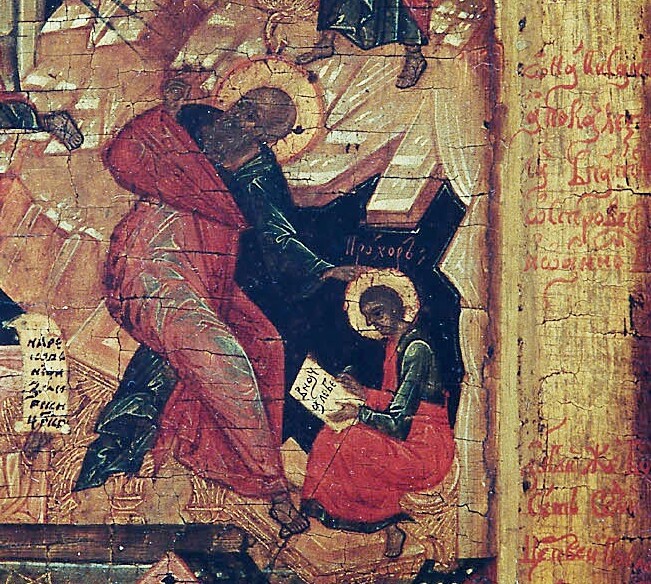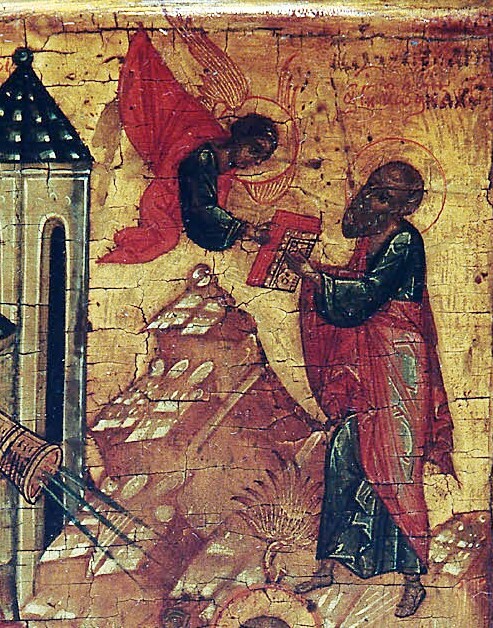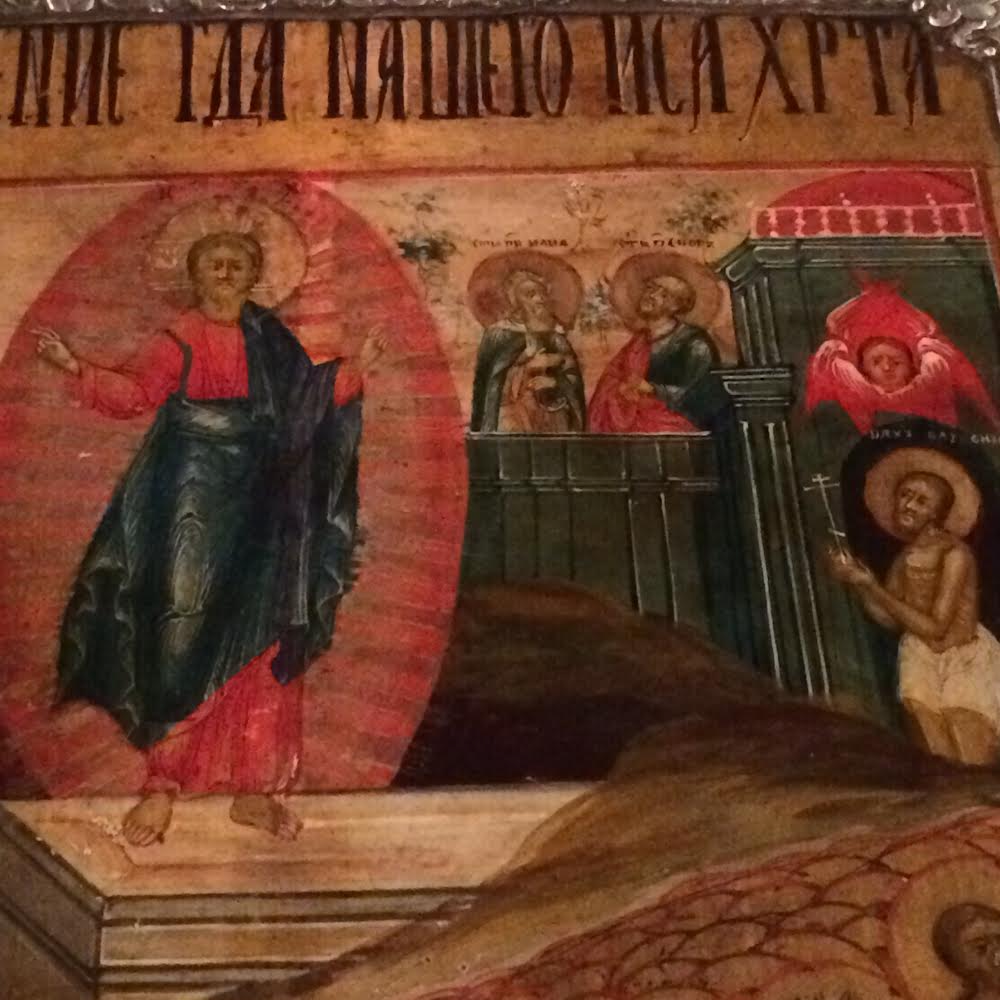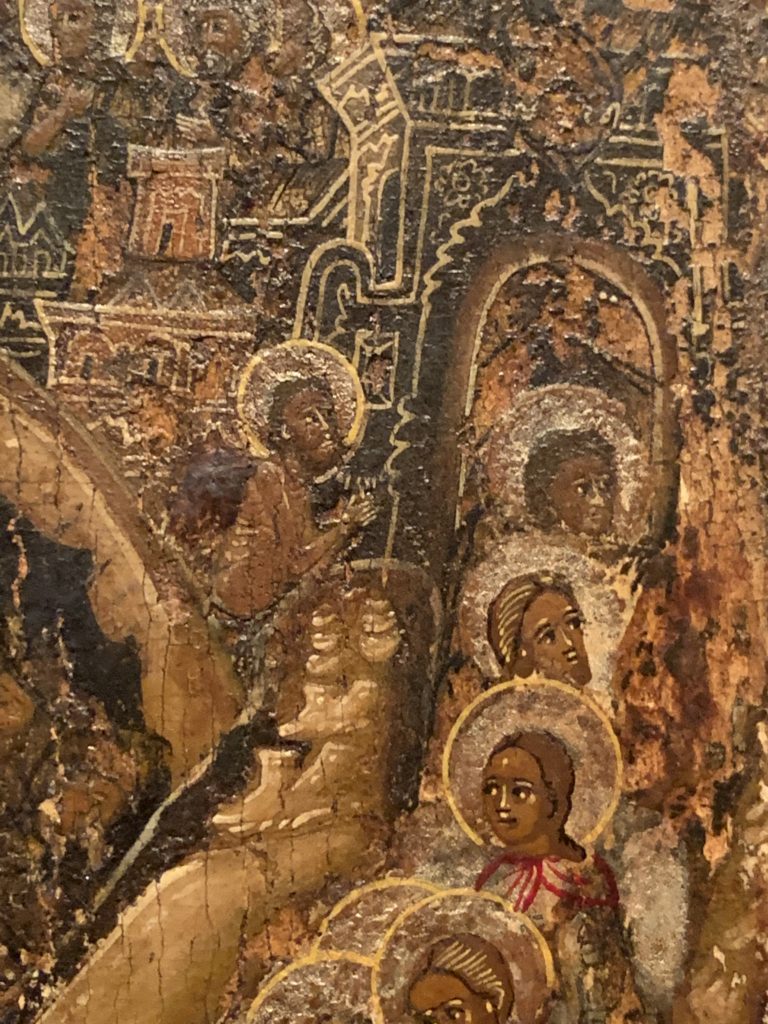“Blessed is the one who reads aloud the words of this prophecy, and blessed are those who hear it and take to heart what is written in it, because the time is near.” (Apocalypse 1:3)
St. John tells us that whoever reads the words of the Apocalypse is “blessed.” This is the first of seven times a person or a group is pronounced “blessed” in the Apocalypse. These seven beatitudes (Rev. 1:3, 14:13, 16:15, 19:9, 20:6, 22:7, 14) are similar to the Beatitudes announced in the gospels during the Sermon on the Mount.
The term rendered as “blessed” in English is a Greek word that can mean both “happy” and “blessed by God;” it has become common to find English translations of the gospels that render the Beatitudes as “Happy are those who mourn… Happy are those who hunger and thirst after righteousness… Happy are the merciful… Happy are the poor in spirit….” This translation is true on one level: those who live in such a way do find happiness but that idea of “happiness” is probably better thought of as “joy.” “Happy” can sound flip and lighthearted, a fleeting emotion that has no roots or stability. To be “blessed by God” certainly contains the idea of joy but also has an austere edge to it: this way of life is difficult but worthwhile and demands self-sacrifice from those who practice it.
Church Slavonic also uses the word “blessed” as a way to describe those the world deems “foolish, crazy, or insane.” The fools-for-Christ (ex. 1 Cor. 4:10) are called “blessed.” The merciful, the poor in spirit, those who hunger and thirst after righteousness are all crazy. Foolish. Insane. Because living like that will always arouse the animosity of “the world,” the fallen order that opposes God.
In the beginning of the Apocalypse, the “blessed” are those who read aloud the words that St. John has written. Reading aloud is a liturgical act. The text that St. John sends to the churches is to be read aloud during the celebration of the Eucharist just as the letters of the Apostle Paul were read aloud during the celebration of the Eucharist. This introduction of the Apocalypse establishes the liturgical context of the whole book. This “reading aloud”–just as the phrase, “I was in the spirit on the Lord’s Day,” i.e. was attending the celebration of the Eucharist on Sunday–make clear that the Apocalypse is best understood as a pastoral letter and a commentary on the Eucharist itself.
The epistle to the Hebrews is the other “liturgical commentary” in the New Testament; it is interesting to note that the two texts that were most problematic in the establishment of the New Testament canon–the epistle to the Hebrews and the Apocalypse–are the two commentaries on the liturgical practice of the early Church.




